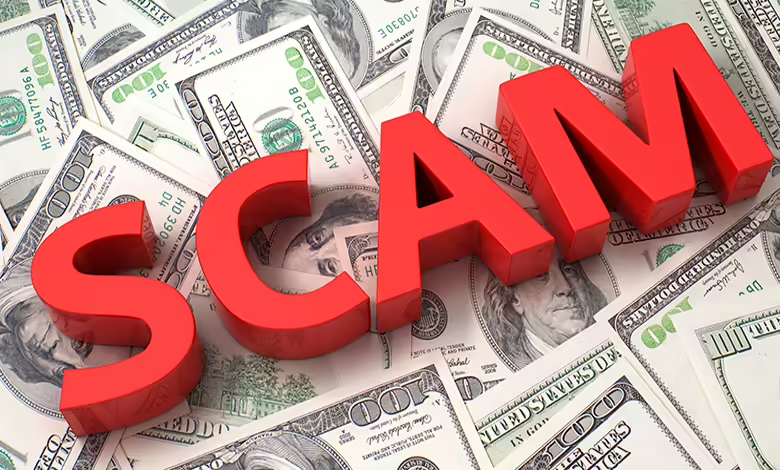What to Do if You Fall for a Scam

“I have been following instructions on the phone and now think something is wrong with these calls. But I am not sure,” a Dallas woman said as she stood before the bank manager, attempting to withdraw a second large payment to send to someone claiming to work for the sheriff’s department. The caller had told her she missed a court date and would soon be arrested and charged with a felony. Her phone ID showed the State of Texas and the documents emailed to her bore the Texas state seal, a sitting judge’s name, personal data, and other convincing information.
The woman immediately checked the sheriff’s department’s website, and the phone number matched the one calling her. The caller’s name also appeared on the website. It seemed legitimate. He had credible information about her: details about a recent court transaction, what she thought was private loan information, her address, and the last four digits of her social security number.
Acting on his instructions, she went to the bank to withdraw over $4,000 to add to the amount she had already sent electronically. Fortunately, the bank representative recognized her and questioned the withdrawal, then involved the assistant manager, who contacted her husband, a police officer. He confirmed this was a telemarketing scam targeting the senior community, with one banking client losing $3 million of her retirement savings.
However, although this scam often targets seniors, they are not the only potential victims.
Steps to Take If You Suspect a Scam Call
- Gather Information: Ask the caller for the name of the organization they represent, their name, address, phone number, and website.
- Be Cautious: Scammers use techniques like “spoofing” to mimic legitimate websites and phone numbers. Verify the information independently. For example, if the URL has a Gmail account or doesn’t have the organization’s full name, it’s likely a scam.
- Hang Up: After gathering the information, hang up the phone.
- Validate Credentials: If they call back, tell them you are still working on validating their credentials.
- Report the Incident: Report the suspicious call immediately.
Frank Abagnale Jr., security consultant and co-author of “Catch Me If You Can,” advises, “Stop, think, and verify, verify, verify! Go to your bank and tell them what is happening; they have the knowledge and experience to recognize scams.”
Follow These Tips If You Have Fallen for a Scam
If you inadvertently fall for a scam, know you’re not alone. Scammers understand what they are doing and are manipulative, often aggressive, preying on your fear that something terrible will happen if you don’t comply.
File Reports
Report the scam to the following:
- Your Bank: Inform your bank or the institution where you withdrew the money. Their security department may also report to the same agencies.
- The Organization: Notify the organization for which the scammer claimed they worked.
- Law Enforcement: Report the incident to the police, district attorney, and FBI. Each agency has specific forms available on their websites.
While these agencies may not recover your money, they will document the incident. If scammers are found in the U.S., your information will help build a legitimate case against them.
Gather Necessary Information for Reporting
When reporting a scam to the authorities (police, sheriff, FBI), have the following information available:
- Victim’s mailing address
- Victim’s email address
- Victim’s phone number
- Description of the incident
- The victim’s bank and account details
- Scammer’s bank and account details, if possible
- *Cryptocurrency wallet details (hash number, if applicable)
- Transaction dates and amounts
- Full financial wiring/routing instructions provided by the scammer.
*Obtain wallet details by calling the cryptocurrency company listed on the kiosk you used for the deposit.

Educate Yourself
Educating yourself is crucial to avoiding scammers. For a list of current scams in Dallas, visit the Dallas County Sheriff’s Department site to stay informed about the latest fraudulent schemes.
Only answer calls from numbers or names you recognize. If the call is important, they’ll leave a message. If you’re unsure who it is, don’t call back—just delete the number.
“If you have a Venmo account, link it with a credit card, not a debit card. If you fall victim and send money with Venmo, there is a recourse with the bank,” Abagnale said.
Stay vigilant and protect yourself from becoming a victim.
Don’t Beat Yourself Up
“Don’t beat yourself up,” says Frank Abagnale. Scammers target people of all ages and are becoming more sophisticated every day:
- In a romance scam, Abagnale said, a man was duped by an AI-enhanced woman who convinced him her brother was a stock genius. Despite warnings from his bank, he continued sending money until he lost $750,000.
- Even high-profile individuals like Mark Cuban and Andy Cohen have admitted to being scammed.
It happens to more people than you realize in all walks of life. Be kind to yourself and avoid ruminating. Reporting the scam details will help you heal. If you need assistance overcoming these feelings, talk with a professional. They are uniquely qualified to provide support and guidance, helping you navigate your emotions, regain your sense of security, and move forward.





